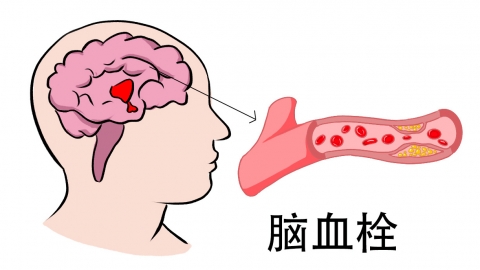What medications are good for cerebral thrombosis?
Generally, cerebral thrombosis is a cerebrovascular disease caused by the blockage of cerebral blood vessels due to blood clots, leading to cerebral tissue ischemia and hypoxia. Common symptoms include limb numbness and weakness, slurred speech, facial drooping, dizziness, and headache. Patients may take medications under medical guidance, such as aspirin enteric-coated tablets, clopidogrel hydrogen sulfate tablets, atorvastatin calcium tablets, cytidine diphosphate-choline sodium capsules, and butylphthalide soft capsules. Detailed explanations are as follows:
1. Aspirin Enteric-Coated Tablets
These belong to antiplatelet drugs that inhibit platelet aggregation, preventing the formation and expansion of blood clots. They reduce platelet accumulation at vascular blockage sites, improve cerebral blood supply, and lower the recurrence risk of cerebral thrombosis. These tablets are suitable for routine treatment during both the acute and recovery phases of cerebral thrombosis.

2. Clopidogrel Hydrogen Sulfate Tablets
This is also an antiplatelet drug that inhibits platelet aggregation by blocking receptors on the platelet surface. It is suitable for patients intolerant to aspirin or with contraindications to its use. It can also be used in combination with aspirin for dual antiplatelet therapy, enhancing thrombosis prevention. This treatment is appropriate for high-risk patients or those with more complex conditions.
3. Atorvastatin Calcium Tablets
This belongs to the statin class of drugs, which lower blood cholesterol levels, especially low-density lipoprotein cholesterol. It can also stabilize atherosclerotic plaques, prevent plaque rupture that may lead to new blood clots, and improve vascular endothelial function. It is suitable for patients with cerebral thrombosis complicated by hyperlipidemia or atherosclerosis.
4. Cytidine Diphosphate-Choline Sodium Capsules
These are cerebral metabolism enhancers that participate in phospholipid synthesis, promote cerebral tissue metabolism, and enhance cerebral blood flow. They help improve brain function impairment caused by cerebral thrombosis, aid in the recovery of neurological function, alleviate symptoms such as limb movement disorders and speech difficulties, and are suitable for neural function repair therapy during the recovery phase of cerebral thrombosis.
5. Butylphthalide Soft Capsules
These improve neurological function deficits in patients with acute ischemic stroke by increasing cerebral blood flow in ischemic regions, improving cerebral microcirculation, and reducing cerebral tissue ischemic injury. They are suitable for patients in the acute phase of cerebral thrombosis, promoting neurological function recovery and reducing disability rates.
Patients should also monitor and control blood pressure, blood glucose, and lipid levels, quit smoking, limit alcohol consumption, maintain a light diet, reduce intake of high-fat and high-cholesterol foods such as animal organs and fried foods, engage in mild exercises like walking and tai chi, and avoid excessive fatigue.











